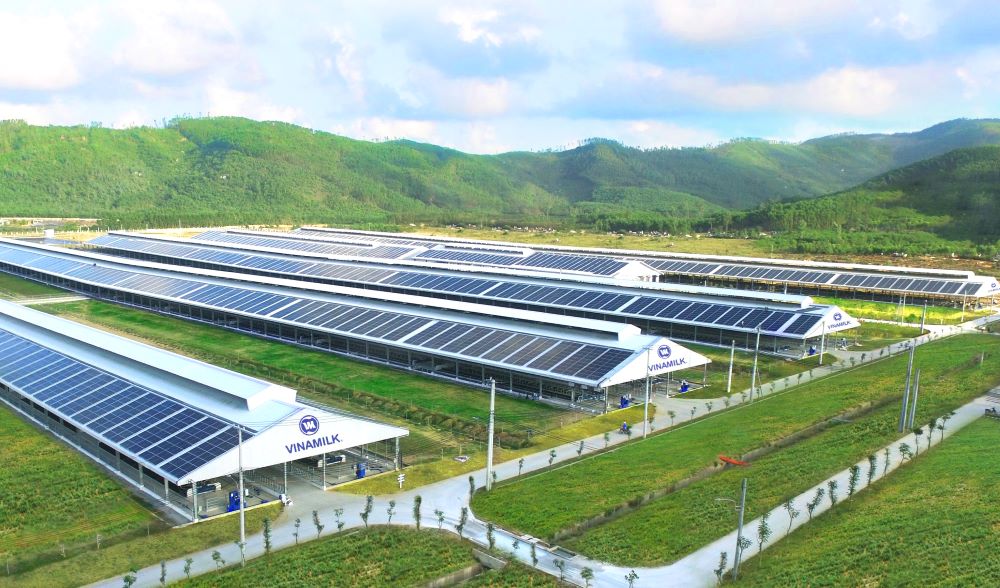Green Economy: Recommendations for Vietnam
Issuing green, social, sustainability, and sustainability-linked (GSSS) bonds to the Vietnamese market could benefit Vietnam by improving the country's ESG scores and attracting increasingly environmentally conscious international investors.

Solar energy system has covered 13/13 farms, 10/13 factories of Vinamilk - Photo: VGP/Phuong Dung.
>> Green Economy: The role of FDIs
As a leading international bank, HSBC together with other financial institutions, has been actively discussing with Vietnam’s government and its regulators how changes to the existing framework would create a more favorable/enabling environment for foreign/international capital. Additionally, as a member of the Glasgow Financial Alliance for Net Zero (GFANZ), this bank is also a part of a private sector working group currently working with the UK’s government on a potential Just Energy Transition Partnership (JETP) for Vietnam.
COP26 President Alok Sharma and Vietnam’s Minister of Natural Resources and Environment Tran Hong Ha recently met at COP27 in Sharm El-Sheikh to discuss the progress, noting that ongoing discussions had deepened their respective understandings of the challenges and opportunities of a low carbon transition in Vietnam and how the parties might work together to address these going forward.
On the local side, Vietnamese financial institutions have strongly developed through the years at a fast pace. They have the competency and capabilities to make differences, therefore, HSBC is open and welcomes the strategic partnership with local banks to support Vietnam in green energy transition.
Ms. Stephanie Betant – Head of Wholesale Banking, HSBC Vietnam, said international policy work is also underway to advance infrastructure as an asset class and to advance sustainable infrastructure. The ‘Finance to Accelerate Sustainable Infrastructure’ (Fast-Infra) aims to establish a consistent, globally applicable labeling system for investments in a variety of sustainable infrastructure assets, including renewable energy and power and electricity transmission/distribution. Through this labeling system, the market can easily signal the sustainability of the asset, and investors can trust that their money is going to projects that meet environmental, social, resiliency, and governance needs and contribute to the SDGs.
>> Green Economy: Financing renewable energy projects in Vietnam
With improved bankability conditions/amendments to the current PPA, Ms. Stephanie Betant expects a significant inflow of FDIs into the renewable energy space, similar to other sites in the region. For example, HSBC recently acted as lead financial advisor to Orsted on the sale of its Greater Changhua 1 offshore wind project in Taiwan (Asia Pacific’s largest market for offshore wind) with stapled financing (including ECAs and private sector finance) for a total transaction value of USD2.7 billion.
"We have also played a major role in bond issuances for renewable energy players in India, including India Green Power, Azure Power, and Renew Power", said Ms. Stephanie Betant.
Last but not least, issuances of green, social, sustainability, and sustainability-linked (GSSS) bonds to the Vietnam market could be a plus for Vietnam, improving the country’s ESG scores and attracting increasingly sustainably-minded international investors. From HSBC’s global experience, Uruguay, a Latin American country, recently earned big applause from the market for successfully completing a sustainability linked deal.
In addition, it has been proven that the process of developing GSSS frameworks is an excellent way to get multiple departments of planning, financing, and spending aligned and enthused around the sovereign effort and the mission to generate a better future. And HSBC is more than willing to play a facilitating role in this development in Vietnam.








